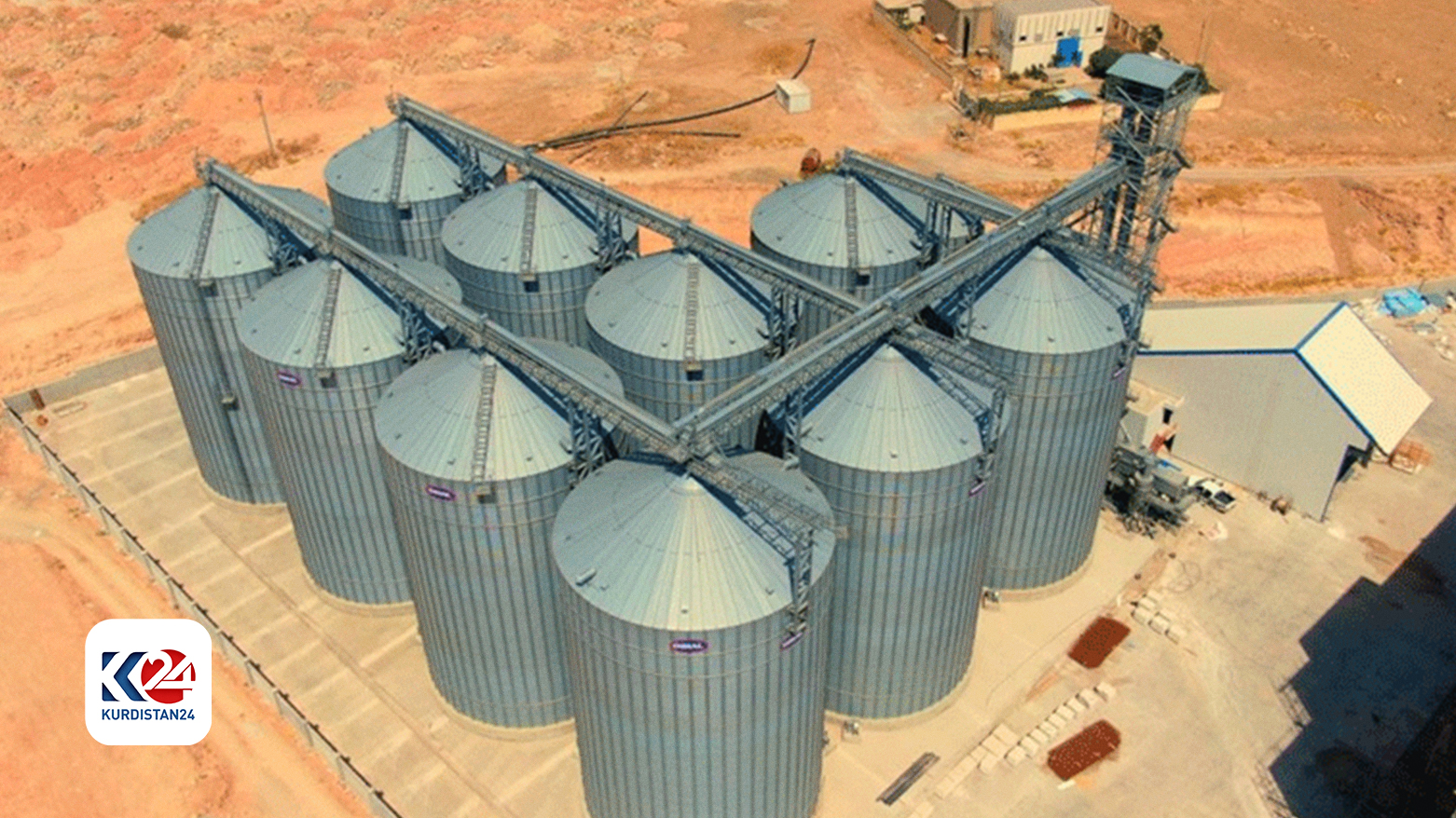KRG boosts wheat storage capacity with new silos
While expressing reservations about setting a wheat quota for Kurdistan this year, Sulaiman underscored that 2.955 million acres of land in Kurdistan have been dedicated to wheat cultivation, benefiting from a minimum rainfall of 400 mm.

ERBIL (Kurdistan24) - The Kurdistan Region Deputy Minister of Agriculture and Water Resources announced the inauguration of three new silos, each boasting a storage capacity of 40,000 tons, under the auspices of the ninth cabinet.
Karim Sulaiman, Deputy Minister of Agriculture and Water Resources, provided insights into this year's wheat reception, emphasizing the meticulous coordination between the technical committee of the ministry and the Iraqi Ministry of Agriculture to ascertain the quantity of wheat.
“We would not recommend nor accept determining the wheat quota for Kurdistan in a disorderly fashion,” Sulaiman stated.
While expressing reservations about setting a wheat quota for Kurdistan this year, Sulaiman underscored that 2.955 million acres of land in Kurdistan have been dedicated to wheat cultivation, benefiting from a minimum rainfall of 400 mm.
This comprehensive approach, devoid of any fallow land, aligns with the agreements reached during recent deliberations.
Three new silos, each could save up to 40 thousand tons
Highlighting the strategic investment in bolstering wheat storage infrastructure, Sulaiman noted the construction of three new silos, each capable of storing up to 40,000 tons of wheat.
Combined with the existing silos, the Kurdistan Region boasts a total storage capacity of 566,000 tons, ensuring enhanced resilience and efficiency in managing surplus wheat.
Equitable treatment of farmers
Advocating for equitable treatment of farmers, Sulaiman emphasized ongoing discussions with Iraqi counterparts to secure funding for additional strategic silos in the Kurdistan Region.
Sulaiman emphasized, “A week ago, while in Baghdad with Begard Talabani, the Kurdistan Regional Government's Minister of Agriculture and Water Resources, we met with the Iraqi Minister of Commerce, discussing the utilization of the surplus wheat from the Kurdistan Region.”
Three main topics have been among discussions with Prime Minister of Iraq Mohammed Shia al-Sudani
KRG's Deputy Minister of Agriculture elaborated, “Yesterday evening, in conjunction with the Minister of Agriculture and Water Resources and representatives from all four Kurdistan factions in Iraq, we met with Iraqi Prime Minister Mohammed Shia Sudani. We addressed three primary concerns, substantiated with evidence. One of the key focal points was strategizing the marketing of wheat and supporting wheat farmers in the region. We also deliberated on the methodology for assessing various factors, such as the area, total rainfall, and others, pertinent to our discussions.”
Fundraising for four new silos to be built in the Kurdistan Region
KRG's Deputy Minister of Agriculture highlighted the second concern, urging Sudan to allocate funds for the construction of four additional strategic silos in the Kurdistan Region.
This initiative, which has been under discussion for some time, involves collaboration between our ministry and import-related ministries.
The third point addressed the Austrian loans intended to assist farmers in purchasing irrigation equipment at subsidized rates. We advocated for equitable treatment of farmers in the Kurdistan Region under this program.
“A decision is yet to be made to reimburse the Kurdistan Region’s farmers,” Sulaiman revealed.
"There hasn't been a definitive decision regarding the monetary compensation for farmers, but we've advocated for parity in treatment between our farmers and those in central Iraq," he remarked.
Amid ongoing negotiations regarding compensation for farmers, Sulaiman reiterated the call for equitable treatment, underscoring the KRG's steadfast commitment to safeguarding the interests and well-being of farmers in the Kurdistan Region.